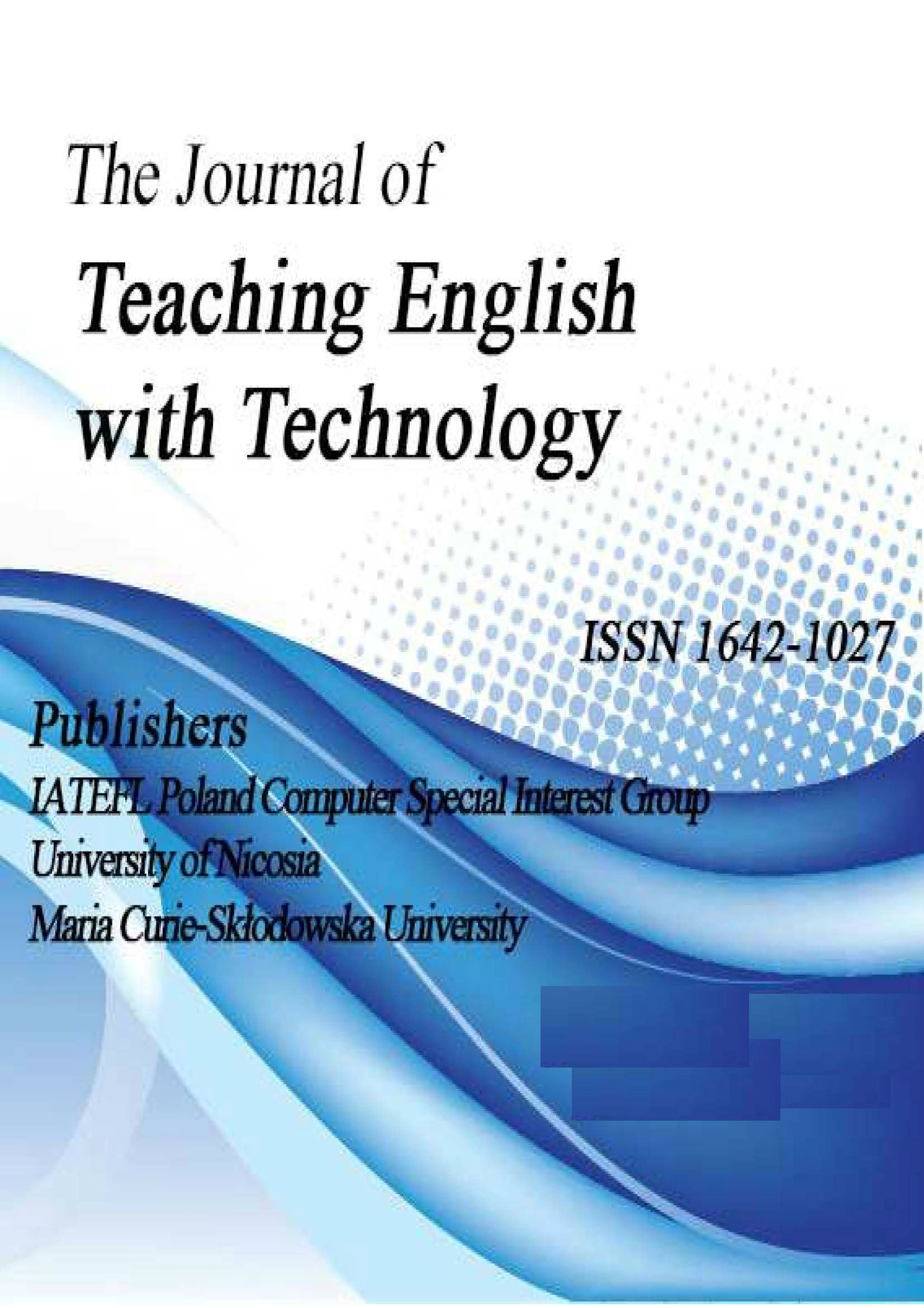INTERMEDIATE GREEK EFL LEARNERS’ ATTITUDES
TO ON-LINE TEACHING PRACTICES: A BLENDED TASK-BASED ENGLISH LANGUAGE LEARNING APPROACH
INTERMEDIATE GREEK EFL LEARNERS’ ATTITUDES
TO ON-LINE TEACHING PRACTICES: A BLENDED TASK-BASED ENGLISH LANGUAGE LEARNING APPROACH
Author(s): Trisevgeni LiontouSubject(s): Language and Literature Studies, Foreign languages learning
Published by: IATEFL Poland Computer Special Interest Group and The University of Nicosia
Keywords: on-line teaching practices; Computer-Assisted Language Learning; English Language Learning; students’ attitudes
Summary/Abstract: This paper reports on a one-year longitudinal study that adopted a blended teaching approach based on designing and implementing an online EFL course to be used by Greek students aged 13-14 years old along their more traditional face-to-face lessons. The reason for creating a more dynamic learning environment aligned with the rest of the curriculum was to increase EFL learners’ engagement and motivation through their exposure to authentic online material and participation in a variety of reading, writing, speaking and listening tasks. Data analysis of pre- and post-achievement tests on English language reading comprehension performance along with students’ Computer-Assisted Language Learning (CALL) attitude questionnaire showed that participants generally had a positive attitude toward CALL. At the same time, open online access technologies gave them the opportunity to further develop their EFL reading comprehension skills. The paper concludes by highlighting the fact that online class components were not designed to fit the online tools into a task-based EFL lesson, but rather served the learning objectives of the actual lesson based on a blended teaching approach.
Journal: Teaching English with Technology
- Issue Year: 15/2015
- Issue No: 2
- Page Range: 81-93
- Page Count: 13
- Language: English

